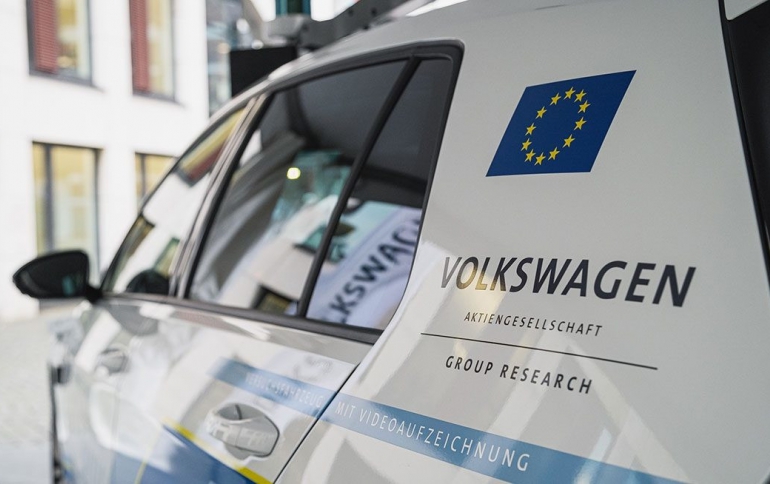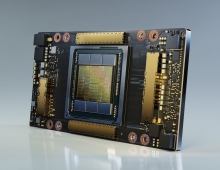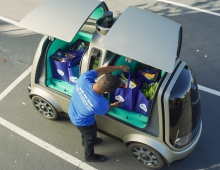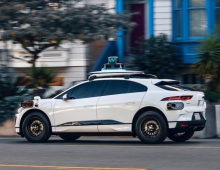
Volkswagen Says Self-driving System Will be Ready for the Market by 2025
By 2025, the Volkswagen Group intends to bring its own self-driving system to market maturity.
“We are working on a market-ready, self-driven system that we want to commercialize as early as the middle of the next decade,”
said Alexander Hitzinger, Senior Vice President for Autonomous Driving for the Volkswagen Group.
Since March 2019, a team from Volkswagen Group Innovation has been using a test route with five converted e-Golf cars in the Hanseatic city of Hamburg.
In several test phases, each lasting approximately one week, the approximately three-kilometer-long section in the vicinity of the convention center is driven several times a day. Various sensors on the roof, in the wheel arches and in the front and rear areas, analyze the surroundings with eleven lasers, seven radars, 14 cameras and ultrasound. Each trunk contains the computing power of 15 laptops that exchange up to five gigabytes of data per minute.

The test drives on the route for automated and networked driving (TAVF) set up by the Hanseatic City of Hamburg enable the optimization of the software used. Already today, the specially equipped e-Golf vehicles are able to calculate the potential traffic situation about ten seconds in advance – with the help of the extensive data gained during the nine-month test phase.
The system can thus anticipate possible scenarios and significantly reduces the response time. This enables autonomous vehicles to react to any hazards before they even occur. The fast and simultaneous processing of extremely large data sets is particularly important.
The project used different approaches for artificial intelligence such as deep learning, neural networks and pattern recognition methods. The traffic situation is re-evaluated several times per second on the basis of the data. The necessary software was written by the Volkswagen Group Innovation team itself.
In order for autonomous vehicles to manage without a steering wheel, pedals and cockpit and thus without a driver, highly complex, intelligent systems, a lot of development time and high investments are required. To become the leading provider of sustainable mobility, the Volkswagen Group is therefore investing 44 billion euros by 2023 in the future fields of e-mobility, autonomous driving, new mobility services and the digitization of vehicles and plants.
Hitzinger sees autonomous vehicles as one of the greatest challenges of our time. It is about the optimization and interaction of a highly complex system architecture consisting of sensors, high-performance computers, software algorithms and an almost endless number of traffic and safety scenarios that have to be taken into account.

The Volkswagen Group has founded Volkswagen Autonomy GmbH, or VWAT for short. The new Wolfsburg subsidiary will have a global presence and aims to bring together the best developers from all over the world – from Wolfsburg and Beijing, to Silicon Valley – regardless of location. As a competence center for autonomous driving from level 4, VWAT under the direction of Hitzinger will bring self-propelled systems to market maturity, and with Argo AI as a strong software partner, form a bridge between the technology and automotive worlds.
“The development of Level 4 autonomous driving is an extremely complex undertaking, in which one is very much dependent on the availability of data,” says Hitzinger. “The test route in Hamburg allowed us to test real scenarios and then optimize the system. Next, we want to drastically increase the number of scenarios. For this we have to use simulations.”





















